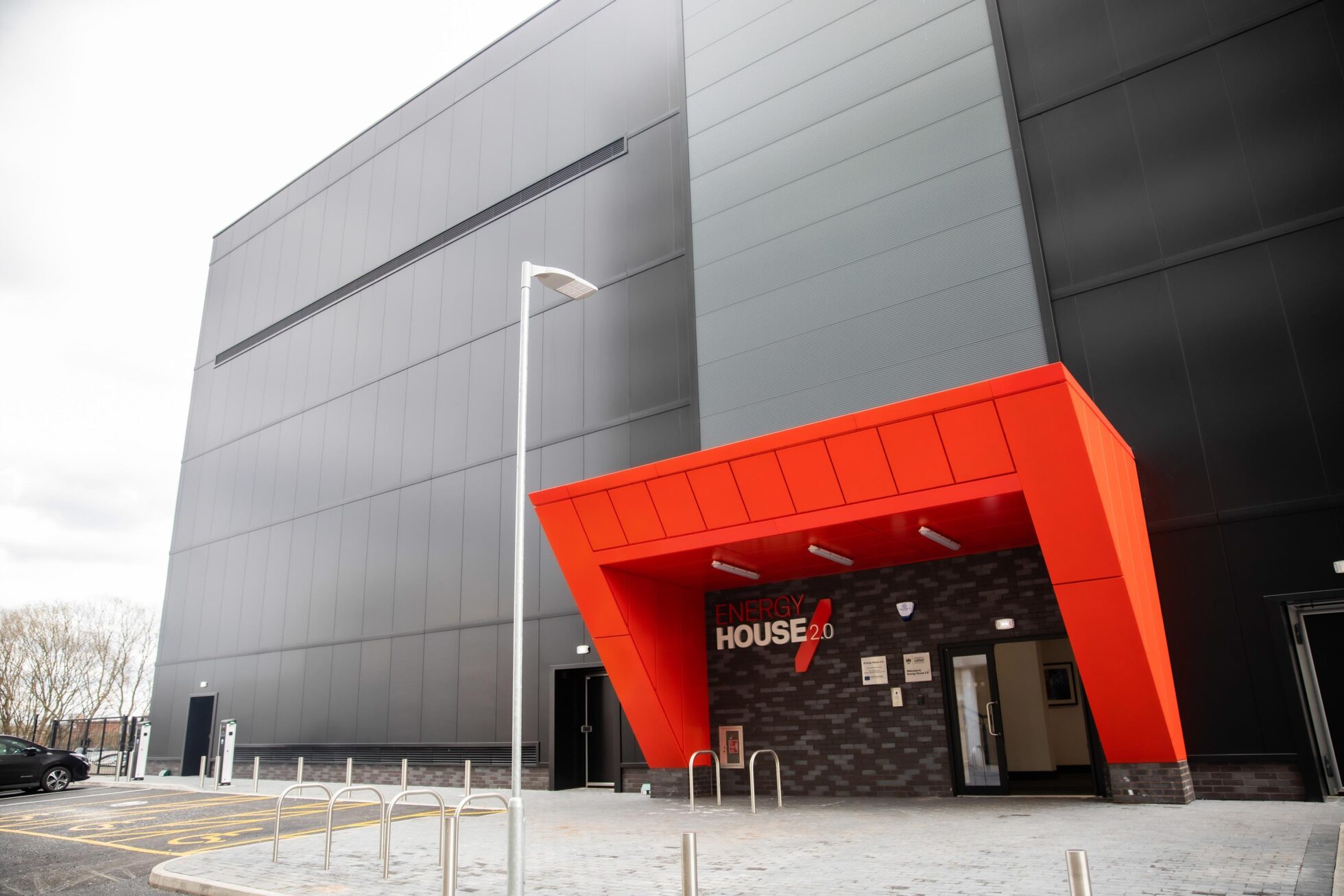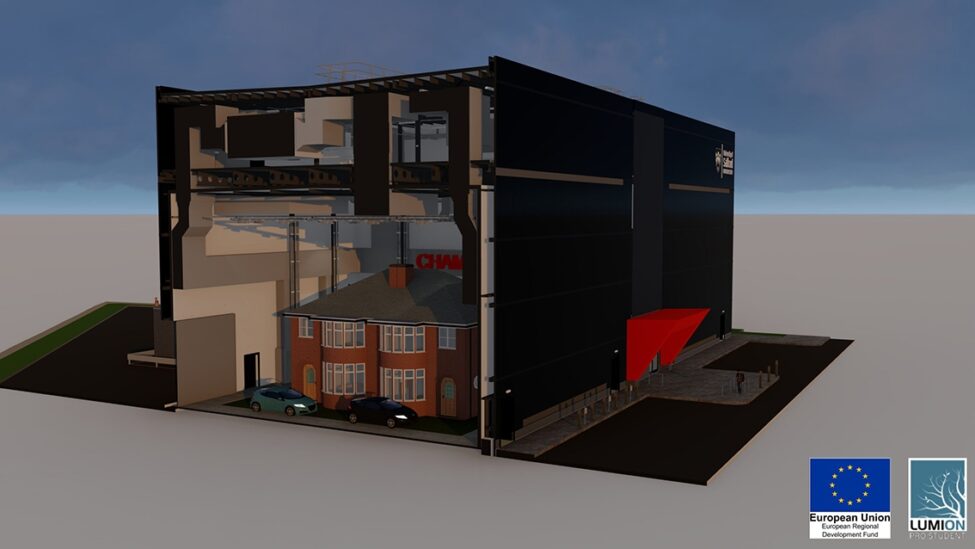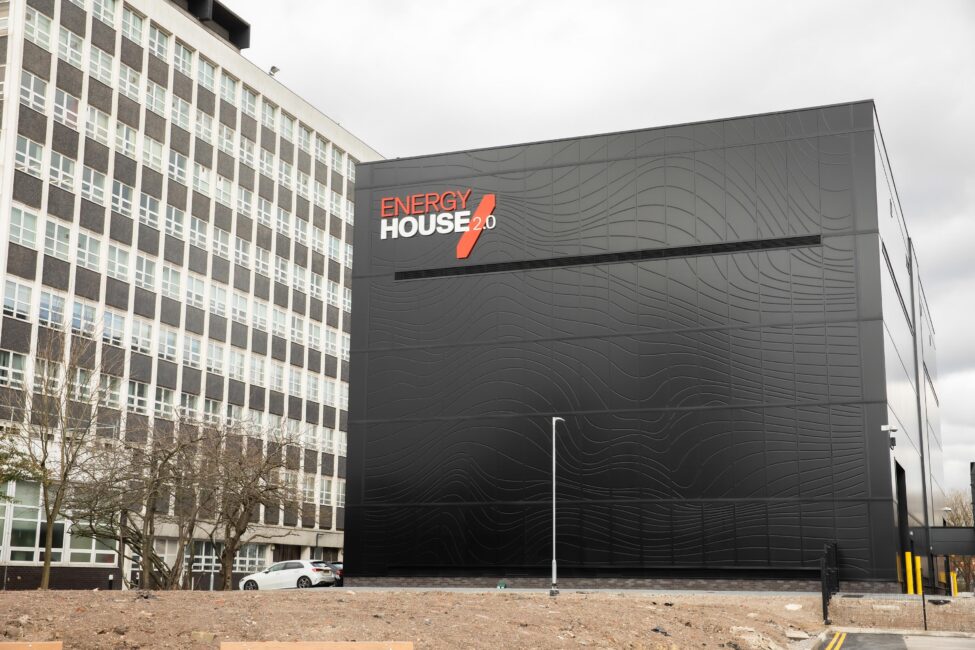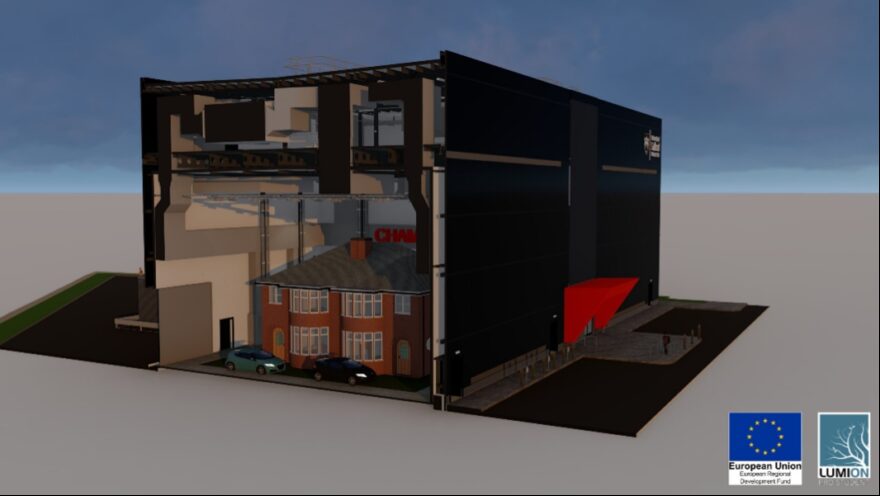Energy House 2.0 completes

Main construction of groundbreaking research lab completes
Energy House 2.0, a leading £16m research facility for the development of new low-carbon homes and retrofit technologies at The University of Salford, has achieved practical completion.
This follows the end of the construction phase of the main building, with the next stage of the construction focusing on the four homes inside the building, which will provide the test bed for the climatic and energy related research.
Property, construction, and infrastructure consultancy Perfect Circle was appointed by the University to provide a range of multi-disciplinary services throughout the delivery of the state-of-the-art research facility. The project was led by AECOM, a founding partner of Perfect Circle, and procured through SCAPE Consultancy, a direct award framework that drives collaboration, efficiency, time and cost savings from one of the UK’s leading procurement authorities.
The Energy House 2.0 laboratory will be the largest test and research facility of its kind, supporting the UK in its ambition to reach carbon net zero by 2050. It has been part funded by the European Regional Development Fund (ERDF). To ensure the project’s success, AECOM delivered the feasibility study, which enabled the University of Salford to initially progress the project, before going on to successfully and rapidly steer it through the planning process. The work meant the project was sufficiently developed in time to successfully bid for ERDF Funding. After the RIBA Work Stage 3, AECOM has continued to provide project and cost management and client-side technical monitoring.

David Maiden, Perfect Circle regional lead and AECOM project director, said: “This truly unique facility will be invaluable in guiding us to make better decisions for future developments and enable our wider industry partners to carry out important research. We have delivered a complex, technically challenging project, with nothing like it ever undertaken before. We believe innovation is crucial in helping the industry reach net zero and projects such as Energy House 2.0 are critically important in this journey.”
AECOM also delivered the hugely complex mechanical and electrical systems, as well as the performance design, which involved the development of two environmental chambers, each able to accommodate a variety of house types. The chambers can recreate a wide variety of weather conditions with temperatures ranging between -20˚C to +40˚C, including simulated wind, rain, snow and solar radiation to represent up to 95% of the populated world’s climatic conditions. Bowmer + Kirkland are the contractors for the construction of the facility.
Victoria Brambini, managing director of Perfect Circle, said: “We provide clients with speedy access to industry leading expertise, delivering innovative solutions that positively impact the built environment. On Energy House 2.0, AECOM’s existing relationship with the client was invaluable in expediting the appointment and ensuring that the ERDF funding that was critical to the project could be secured.
“Collaborating with delivery partners such as the University of Salford, Bowmer & Kirkland, Bond Bryan Architects and NG Bailey, helped to develop a solution that will bring benefits to the university, the region as well as the wider market. We are proud to have been part of this exciting project and look forward to seeing how it will support the understanding of, and finding solutions for, some of the most challenging energy and climate change issues we are facing globally.”
Mark Robinson, group chief executive at SCAPE said: “The built environment is responsible for roughly 40 per cent of the UK’s carbon emissions and it will take bold initiatives to tackle this. Energy House 2.0 will play a crucial role in helping the sector – and country – achieve its net zero ambitions.
“The project sets out a clear case for the benefits of early collaboration. By identifying potential challenges and time pressures early on, the delivery team were able to rapidly accelerate a much-needed facility for Salford and benchmark project for the UK’s built environment sector.”
The finished Energy House 2.0 facility will have two large chambers and will allow up to four houses to be experimented on at any one time. The ERDF funding will also enable SMEs to access the facility and innovate in the development of energy saving products. Other project partners include Muse Developments in partnership with the English Cities Fund. It will build on the leading work undertaken at Energy House, which has enabled key changes to UK housing stock to save energy, and will offer world leading research and academic expertise in Smart Living.
The new facility will open in summer 2022.


